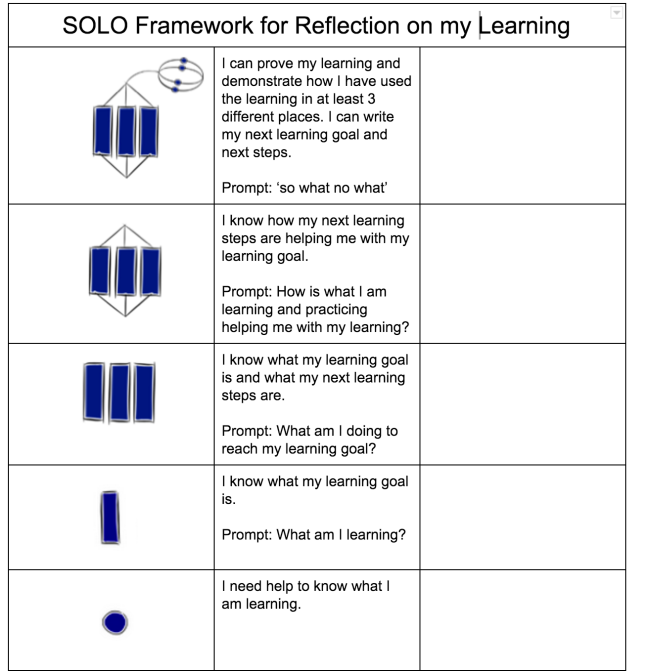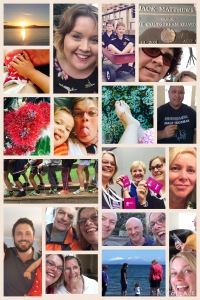My notes from NaPP Hui 2015. All mistakes are my own.
Michael King
Regional Coordinator
Te Toi Tupu Kaiarahi
Korero
- Is Important
- Is the relationships
Let the silence do the heavy lifting
Pepeha is a part of us it isn’t a thing that we do.
Use the skills and talents of those that are important recognize the treasures in front of you, deepen the relationships and use the opportunity to grow as a leader
Jan Robertson – Academic Director
Develop leaders around you that will be more than you have ever been.
Ask yourself how does the Treaty of Waitangi affect your leadership.
Be concerned for the students down the road as you are with the students within your school.
Leadership is about what we take in any context.
Knowing who we are
Future Focused leadership, question to think about.
What Skills disposition and attitudes require for future focused leadership
Mere Berryman
Learning from Students
Education is the opening of identities
2001
Power is shared between self determining individuals. – Ask the students what do they think?
Pedagogy is responsive and interactive – from where the students are here and now.
Develop relationships that show that you care but have high expectations
Activate all the minds in the room not to the whole room
Evidence based solutions are co-constructed. teachers and students
Louise Anaru – Principal Flaxmere College
Professional learning groups
Responding to individual learning needs – research ‘every child deserves a champion’
- student mentoring – 1 teacher with 6 students – teachers need coaching
- Individual learning plans – recorded on the SMS
- Three way conferences are now student led
- Student choose their mentor
- Teacher mentor are students champions
- Parents are informed and involved in this process so learning continues
- Progress is monitored weekly with their mentor
- Curriculum very broad and aligned to students interests and aspirations
- Be flexible to changes in aspirations and interests as these change
- Strong engagement is demonstrated in student and whanau voice
What are my beliefs about educational leadership?
I am a leader because I would like to develop ideas, beliefs and practices around the success for all learners with a particular focus on our Maori and Pasifika. This year I would like also include the success of boys in here as the boys in our school are not as successful as our girls and in line with the achievement of our Maori students.
You do not, do Kahikitia, you live it – Neil Couch
Russel Burt
In his context Acceleration is 1.5 in 1 year
Technologies is the leader for change, it can advantage those who are disadvantage, it changes pedagogy.
Remember who you work for – STUDENTS
The whanau needs to be apart of the technology change.
Key competencies are not any different to other learning progressions.
Open your work up to the public, you are paid by the public then what you do should be public.
All work at PT England is public – go to their website
http://www.ptengland.school.nz/home
https://sites.google.com/a/ptengland.school.nz/keeping-to-the-pt1/schooltv/planning-for-learning
Be true to yourself and be true
The Hard discussions – You can say no you can disagree as vehemently as you like but you can’t leave the room
Key Competencies for the future
What did I learn about myself and my leadership when challenged when creating my Digital leadership Korowai?
I learnt that my whanau are the most important thing in the world. My students allow me to grow as a leader because they are the very reason I am a leader. As Russel Burt puts it , I work for them. There are few adults that I have met that have influenced my leadership other than the members of my family. Those few adults outside my family who have influenced my leadership have qualities in them that I aspire to be – change makers, they demonstrate authentic whanaungatanga.
It is important to listen as much as you can without questioning because then you determine the direction of the conversations. Really important to remember when listening to our students and our teachers.
By doing the listening you are showing that you value what they are going to say.
Reflection – what local challenge is your inquiry into your leadership addressing and how will this address key challenges in NZ education today?
Modern Learning and the Leadership needed
Herman Brain Model to gauge how your teachers operates.
Collaborative teaching approaches
Teaching the students the skill of self regulation
Relationships
Teach how to use the spaces
Trust and accountability of students
student voice gathered frequently
Allow your teachers and students to take risks and try different approaches.
Flipped learning – Rich tasks –
The Future of Education- Jane Gilbert
Why change is needed and what this means for school leaders.
1.Increasingly fast – changing world. ‘digital revolution’
- uncertainty
- unpredictability
- complexity
- exponential change
Here to stay!
- Equal opportunity for all – we haven’t done this can we do it?
What should we do about this?
We need to prepare people, not for known or even likely outcomes,, but to be Intellectually AGILE enough to face any possibility. Connect/collaborate/think with diverse others ‘in the network’
The problems we face:
- the thinking tools we’re using are out of date – the shift is from things to spaces between things. – connections/networks/relationships (not just social)
- Knowledge has a new meaning – Too Big To Know – Weinberg –
What school needs to be for in the 21st century
clades (organism made on the bases of it relationships not shared features) not clones
Diversity encouraged, because we don’t know what we need. If we create clones then we are stuffed because we don’t know what we need.
We need to:
- think differently
- engage differently
- act with people and different networks
What does this mean for teachers and leaders?
We need to do some cognitive growth and challenge ourselves. a very different mindset and thought processes.
We don’t know what the future will be all we know is that it will be very different.
It is our job to create educations future together by working in positive engaged, thoughtful ways, with others.
Create self review systems with my team – Kaye
I live in Taupo and I affiliate myself to Mount Ruapehu. The Waikato river is important to me because it flows from my mountain to the south of Auckland, where I grew up in Mangere. I went to Mangere College, where some of the students here at NAPP are attending now.
My Father is Cornish, He was born and grew up in Mullion Cornwall. He fought in the second world war and his only scars other than emotional and spiritual is one on his leg from a Camel kicking him.
In Cornwall, 1960 my family began its journey to Aotearoa. My mum, my dad and 5 of my siblings travelled on a ship to Australia, where my family grew by 2. There they started another journey with 7 of my siblings to our beautiful country where they had the best of the Matthews Clan of 9. My brother and myself the last of my immediate clan can claim Aotearoa as our birth place.
In 1996 I left Auckland for a change in lifestyle and headed to Taupo. There I have bought up my two children, Joshua and Hannah. They both live in Hamilton yet Taupo remains their home.
My name is Melanie Matthews I am first and foremost a mum, nana, partner and second to that I am very privileged to be a Leader in Education.
From Aspirational to Actual – Geoff Childs and Jill Lunn
The 5 characteristics of leadership.
empathy, integrative, collaborators, optimism, experimentalism
I need to share my inquiry with the staff and students.

 in this world of education is surprisingly our biggest challenge. Getting it right is so,so,so important because one day, our work will finish and will be gone. That important stuff will always be there, will always need us and deserve us more than our work.
in this world of education is surprisingly our biggest challenge. Getting it right is so,so,so important because one day, our work will finish and will be gone. That important stuff will always be there, will always need us and deserve us more than our work.
